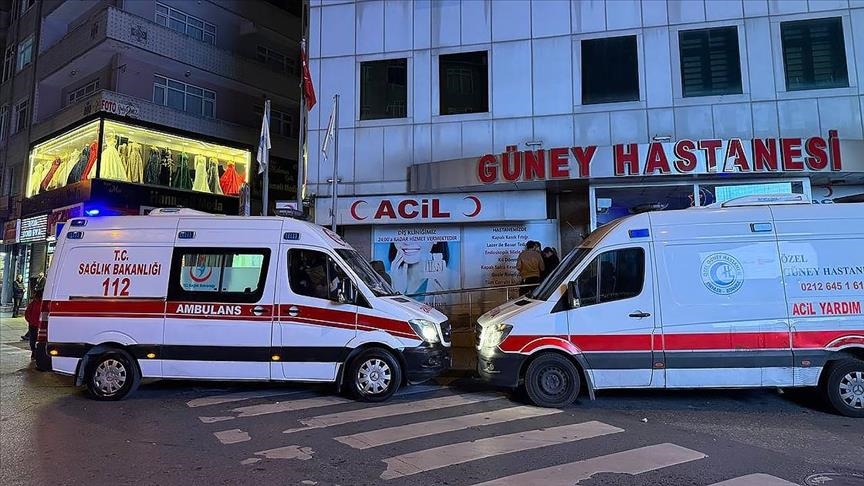

By Anadolu Agency
ANKARA
Türkiye’s health minister on Tuesday responded to questions on the so-called “newborn gang,” saying the government had dismantled the criminal network through coordinated efforts with law enforcement and the judiciary.
Speaking to parliament’s Planning and Budget Committee during a discussion of the Health Ministry’s 2025 budget, Kemal Memisoglu addressed questions also on the handling of the newborn gang, who caused the deaths of babies by referring them to private hospitals they had agreements with for illicit gains.
“We worked in complete coordination with the provincial health directorate, law enforcement, and judicial authorities to dismantle this gang,” Memisoglu said. “It seems some were disturbed by this, as they launched a ruthless campaign against us.”
Allegations of cover-up denied
Memisoglu rebuffed claims that he closed an investigation into malpractice in newborn care in 2016, during his tenure as Istanbul’s health director. He said the inquiry began in January 2016 following an email complaint and was led by a chief inspector appointed by the ministry.
The inspector’s report concluded that there was no evidence of harm to newborns from treatments provided, Memisoglu said, adding that based on this, the investigation was finalized that November.
He also shared documentation showing he had requested further information on the investigation shortly after taking office that October, stressing the ministry’s findings at the time: “No evidence of harm to infants was found.”
Focus on newborn intensive care
In response to criticism over alleged inadequate oversight of private healthcare facilities, Memisoglu highlighted significant strides made in improving newborn care.
Ensuring the health of infants during their neonatal stage has been a priority for the ministry, he said, adding that Türkiye has reduced its infant mortality rate from 31.5 per 1,000 live births in 2002 to 9.8 in 2023.
Private healthcare facilities face regular inspections, he said, stressing that in 2024 alone, the ministry did 54,885 inspections of private healthcare facilities, resulting in penalties, license suspensions, or legal action where violations were found.
He also confirmed that an expert report this September established a link between the gang’s actions and several infant deaths. This marked the first formal connection between the deaths and the criminal network.
Following this breakthrough, private hospitals implicated in these crimes were immediately closed, he said.
Newborn gang’s social security fraud scheme
The trial of the criminal gang accused of causing the deaths of newborns for illicit financial gains began on Monday.
The defendants are charged with transferring newborns to neonatal units in 19 private hospitals, where they were allegedly subjected to unnecessary and prolonged treatments. It is believed that at least 10 babies died due to neglect or malpractice in these facilities, which lacked adequate resources to provide proper care.
The defendants are also accused of falsifying medical reports to exaggerate the severity of the infants’ conditions, enabling them to claim payments from Türkiye’s social security institution.
The scandal that surfaced last month has ignited public anger and demands for stricter oversight of the healthcare system. In response, authorities have revoked licenses and shut down nine of the 19 private hospitals involved in the scandal.
Parliament also set up a committee to investigate newborn deaths in hospitals linked to the scandal.
President Recep Tayyip Erdogan vowed that those responsible would face severe consequences. However, he warned against condemning the entire healthcare sector for the actions of a few individuals.
“We will not allow our healthcare community to be battered over a few rotten apples,” Erdogan said.
We use cookies on our website to give you a better experience, improve performance, and for analytics. For more information, please see our Cookie Policy By clicking “Accept” you agree to our use of cookies.
Read More